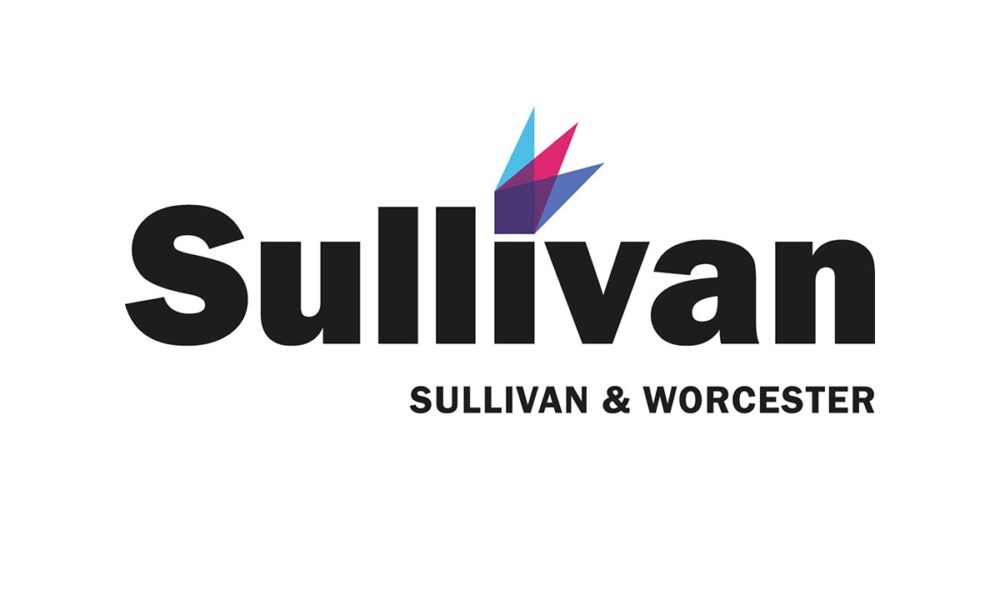Regulation
Steps for Federal Regulation of Blockchain and Cryptocurrencies | Sullivan & Worcester

[co-author: Karly Roux, Summer Associate]
On May 22, 2024, with bipartisan support, the United States House of Representatives passed HR 4763, the Financial Innovation and Technology for the 21st Century Act (“FIT21”), becoming the first major cryptocurrency legislation to pass either house of Congress.
Brief summary of FIT21
Generally speaking, FIT21 aims to provide safeguards, full disclosure of information to customers and operational guidelines for digital assets.[1] If passed, the FIT21 Act would grant the U.S. Securities and Exchange Commission (“SEC”) the authority to regulate restricted digital assets.[2] and grant the Commodity Futures Trading Commission (“CFTC”) the authority to regulate digital commodities.[3] The bill distinguishes digital assets from restricted digital assets based on their “decentralization” and “functionality.”
In general, a decentralized blockchain is a blockchain in which:
- in the preceding 12 months, no person has had unilateral authority to control the blockchain or its use, and no issuer or affiliated person owned 20% or more of the digital asset or the voting power of the digital asset, and all issuances of units of the digital asset through the operation of the blockchain system were intended for end users, and
- in the preceding three months, the Issuer and Affiliated Persons have not contributed any intellectual property to the source code of the blockchain system that materially changed the functionality or operation of the system other than certain technical corrections or modifications that were adopted by consensus or agreement of a decentralized governance system, and neither the Issuer nor Affiliated Persons have marketed the digital asset to the public as an investment.
The bill defines a functional blockchain system as a system that allows network participants to use a corresponding digital asset for application on the blockchain system, transmission and storage of value, participation in services or participation in the decentralized governance system on the blockchain.
Under the bill, a person may certify to the SEC that a blockchain system to which a digital asset relates is a decentralized system. As part of such certification, the person would provide detailed information to the SEC to support the determination that the system is decentralized, including, among other things, with respect to functionality, governance, ownership of the digital asset, and recent issuances. The blockchain system would be deemed certified as decentralized 60 days after the date of certification, unless the SEC provides notice within that time period that the person making the certification provided an inadequate explanation or that there are novel or complex issues that require additional time to review. The bill also provides an appeals process if the SEC ultimately determines that a system is not decentralized.
Once a blockchain system to which a digital asset relates is a functioning system and certified as decentralized, the digital asset falls within the definition of a digital commodity and will be regulated by the CFTC. Excluded from the definition of a digital commodity are digital assets held by the issuer of the digital asset or owned by related persons.[4] and affiliates of the digital asset issuer[5] – these digital assets will be regulated by the SEC.
The bill also proposes amendments to the Securities Act of 1933 (the “Securities Act”), including a new Section 4(a)(8) of the Securities Act, to include processes and procedures for issuers to offer and sell units of digital assets in transactions exempt from the full registration requirements of the Securities Act, and also proposes new authority for the SEC to register and regulate digital asset broker-dealers, digital asset dealers, and digital asset trading systems.
Potential impact of FIT21
If passed, the FIT21 Act could potentially provide a clearer and more stable landscape for the U.S. digital asset market while fostering technological innovation. The bill attempts to accomplish this by imposing certain limited disclosure requirements aimed at preventing market manipulation and fraud, thereby increasing investor confidence in these investment opportunities. Consumer protections within the FIT21 Act include requiring brokers, dealers, and exchanges to register with the SEC or CFTC, disclose asset information, segregate customer funds, create lock-up periods for token insiders, and limit annual sales volume. Additionally, by defining the difference between a commodity and a security, the bill helps alleviate some of the regulatory ambiguity that exists in the cryptocurrency industry. Given the efforts of other countries to develop their own regulatory guidelines, FIT21 could solidify the United States’ role as a thought leader in the fintech space.
However, some critics of the FIT21 bill argue that it will fall short of its goals and could cause more problems than it solves. Whether or not FIT21 passes, it will at a minimum be a critical first step in the congressional debate over digital token regulation and serve as a foundation for future legislative proposals.
Next steps for FIT21
The Biden administration issued a statement expressing concerns about the bill’s lack of adequate protections for investors and consumers, but it nonetheless expressed its willingness to work with Congress on regulating cryptocurrency market activity, and it did not threaten to veto the bill if it passed the Senate. The Senate now has the opportunity to amend the bill, but as of the end of June 2024, it had not yet scheduled a full House vote or committee hearing to discuss those changes. In any case, while passing FIT21 may be an uphill battle, the bill’s passage in the House underscores growing bipartisan support for clear and comprehensive cryptocurrency legislation.
